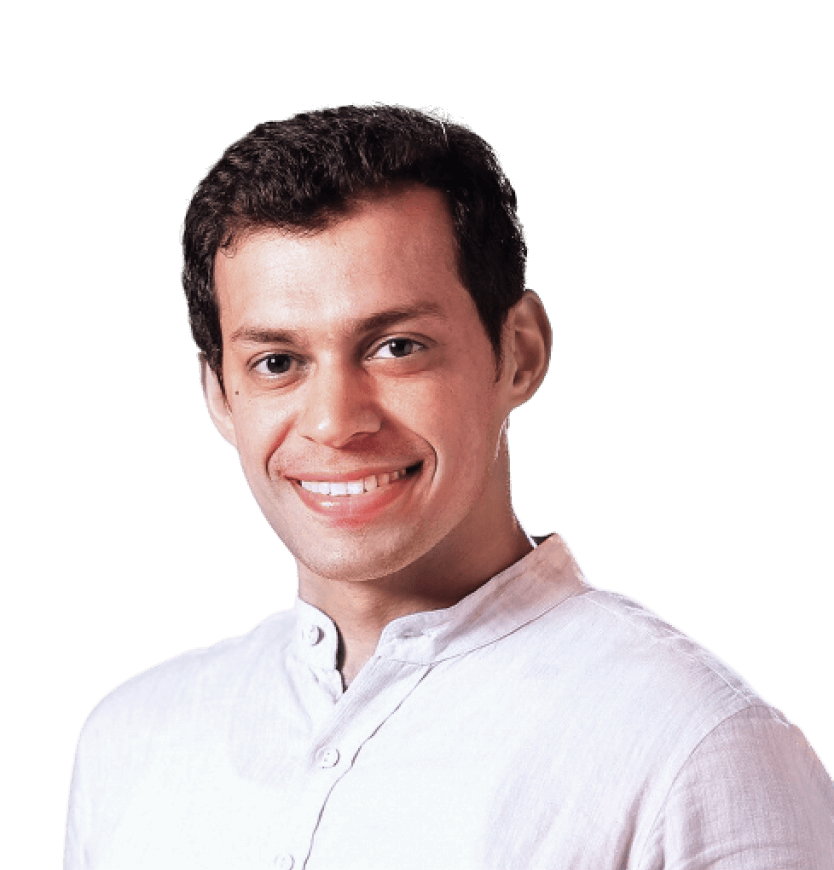
Author
Utkarsh Sahu
Director, Category Management @ Interview Kickstart || IIM Bangalore || NITW.
Apple conducts one of the most difficult technical interviews for software engineers. Given the 1% acceptance rate, even experienced engineers who excel in their current roles struggle to get an Apple interview. The only true way to crack the Apple interview by overcoming the stiff competition, not to mention the grueling interview rounds, is to have a solid prep strategy that addresses all of the important elements required to succeed.
If you’re a software engineer, coding engineer, software developer, engineering manager, or tech lead preparing for tech interviews, check out our technical interview checklist, interview questions page, and salary negotiation e-book to get interview-ready!
Having trained over 9,000 software engineers, we know what it takes to crack the most challenging tech interviews. Since 2014, Interview Kickstart alums have landed lucrative offers from FAANG and Tier-1 tech companies, with an average salary hike of 49%. The highest-ever offer received by an IK alum is a whopping $1.267 Million!
At IK, you get the unique opportunity to learn from expert instructors who are hiring managers and tech leads at Google, Facebook, Apple, and other top Silicon Valley tech companies. Our reviews will tell you how we’ve shaped the careers of thousands of professionals aspiring to take their careers to new heights.
Want to nail your next tech interview? Sign up for our FREE Webinar.
If you want to nail the Apple interview, our comprehensive 2-month Apple interview prep plan is everything you’ll ever need. Here’s what you’ll learn in the article:
The interview process at Apple is similar to that at other FAANG companies. It mainly focuses on evaluating your ability to solve tough coding problems and build arbitrary software systems. If you want to stand out in the Apple interview, spending as many as 6-8 weeks practicing core DSA coding problems is highly recommended.
The Apple interview consists of three main rounds.
In this round, you’re contacted by a recruiter from Apple’s HR department. Updating your LinkedIn profile with the proper keywords. Distribution of keywords is key to capturing recruiters’ attention who widely use LinkedIn’s Boolean algorithms.
Recruiters in this round will ask you basic questions about your professional experience, expectations from the role, skillset, and compensation expectations. If your profile satisfies the requirements of the role, you’ll be invited to the remote coding interview, also known as the Technical Phone Screen round.
In this round, your coding abilities are evaluated. You’re given one or two problems to solve in core data structures and algorithms. The Technical Phone Screen is a remote interview round and typically spans 30minutes. You’re asked to articulate your approach, brute-force the problem solution, and write error-free code.
Preparing core concepts in data structures and algorithms is key to getting past the Technical Phone Screen interview.
Apple’s On-site interview is structured to assess your coding and design abilities. You’re also required to appear for a behavioral interview where your personality characteristics, questions around your professional experience, and response to work-related situations are evaluated.
Take a look at this Apple Interview Guide to learn more.
In order to ace Apple’s technical interview, you must make sure to have a solid prep plan and stick to it. In this section, we’ll look at the ideal 2-month Apple interview preparation plan that will help you nail the technical interview at Apple.
Apple phone interview questions are mostly around past professional experience, your interest in the position, and your professional skillset.
Apple phone interview questions are mostly asked during the Initial recruiter screen. Let’s go ahead and look at some common Apple phone interview questions to help you get an idea of what to expect at the interview.
The above Apple phone interview questions will help you get an idea about the type of questions to expect at Apple’s Initial Recruiter Screen.
As already mentioned, coding is a crucial part of the assessment process for software engineers. While it is recommended that you practice problems in all core DSA concepts, Apple’s coding interviews mainly test your knowledge in Graphs, Trees, Greedy Algorithms, and Dynamic programming. That said, the important coding concepts to prepare for the Apple interview include:
Below are some Apple coding interview questions in coding asked at the Apple interview. Let’s go ahead and take a look.
Want to practice more coding questions for the Apple interview? Visit our Problems Page to find out more.
Systems design is a crucial component in the Apple interview process for software engineers. Let’s look at the important design concepts you should prepare to ace Apple’s design interview.
 Below are some sample systems design interview questions asked at the Apple interview.
Practice some more Apple Interview Questions here.
Behavioral and leadership interviews often put even experienced engineers in the spot. Practicing answers to behavioral questions should be a key part of your prep strategy.
We’ve listed some common Apple behavioral interview questions to give you an idea about the type of questions to expect.
The above Apple interview questions will give you a good idea about what topics to prepare. Practicing these Apple interview questions for software engineers will help your problem-solving skills and ace your tech interview.
As we discussed earlier, cracking the Apple interview requires a dedicated and comprehensive prep strategy. These effective tips to ace your Apple interview are all you need to beat the competition.
Q1. How many weeks are required to prepare for Apple’s technical interview?
To give yourself the best chance at acing Apple’s technical interview, you should ideally begin your preparation at least 9-10 weeks before your interview.
Q2. What important coding concepts should you prepare to solve Apple interview questions on coding?
The important coding concepts that are important for Apple’s technical interview are – Strings, Arrays, Linked Lists, Recursions, Graphs, Trees, Sorting Algorithms, and Dynamic Programming.
Q3. What are the most important topics to study in order to answer Apple interview questions about system design?
The important systems design topics for Apple’s design interviews are – Caching, Loading, Network Protocols, Sharding Techniques, Concurrency, Servers, Databases, and API Modelling.
Q4. How long should you prepare for Apple’s behavioral interview?
Ideally, you should dedicate at least a week of your prep time to ready yourself for Apple’s behavioral interview.
Q5. How much time should you spend preparing for Apple’s systems design interview?
Ideally, you should spend at least two weeks preparing yourself for Apple’s systems design interview.
Are you getting ready for an upcoming technical interview? Register for our technical interview webinar.
At Interview Kickstart, we’ve trained over 9,000 engineers to land lucrative offers at the biggest tech companies. Our instructors, who are FAANG hiring managers, know what it takes to nail tough tech interviews at top technology companies.
Register for our FREE webinar to learn more.

Attend our free webinar to amp up your career and get the salary you deserve.


Time Zone:







The 11 Neural “Power Patterns” For Solving Any FAANG Interview Problem 12.5X Faster Than 99.8% OF Applicants
The 2 “Magic Questions” That Reveal Whether You’re Good Enough To Receive A Lucrative Big Tech Offer
The “Instant Income Multiplier” That 2-3X’s Your Current Tech Salary

The 11 Neural “Power Patterns” For Solving Any FAANG Interview Problem 12.5X Faster Than 99.8% OF Applicants
The 2 “Magic Questions” That Reveal Whether You’re Good Enough To Receive A Lucrative Big Tech Offer
The “Instant Income Multiplier” That 2-3X’s Your Current Tech Salary
Just drop your name and email so we can send your Power Patterns PDF straight to your inbox. No Spam!
By sharing your contact details, you agree to our privacy policy.
Time Zone: Asia/Dhaka

We’ve sent the Power Patterns PDF to your inbox — it should arrive in the next 30 seconds.
📩 Can’t find it? Check your promotions or spam folder — and mark us as safe so you don’t miss future insights.
We’re hosting a private session where FAANG insiders walk through how they actually use these Power Patterns to crack interviews — and what sets top performers apart.
🎯 If you liked the PDF, you’ll love what we’re sharing next.
Time Zone:

